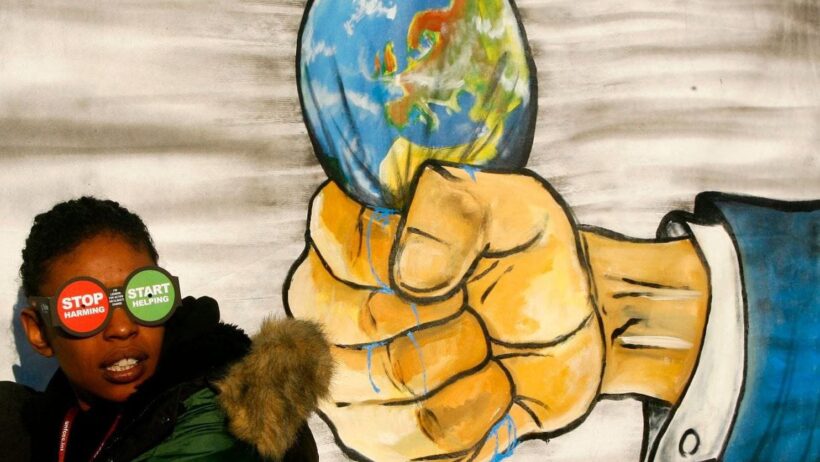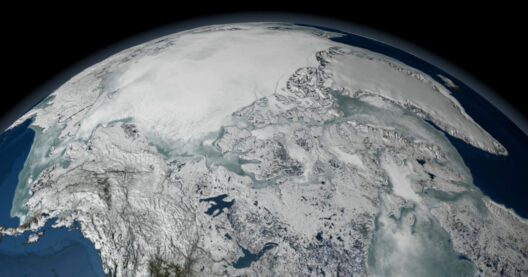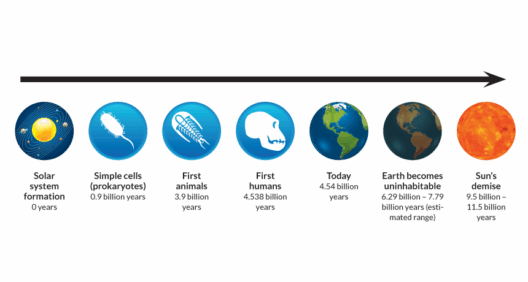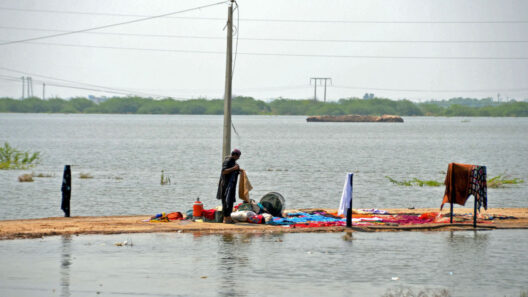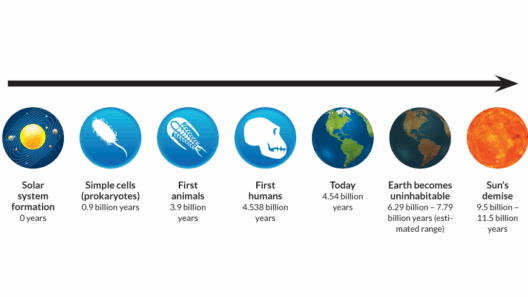Climate change represents one of the most formidable challenges facing humanity today. It is often perceived through the lens of rising temperatures and erratic weather patterns. However, a profound understanding of its implications transcends mere observation. The interconnectedness of ecosystems, economies, and societies is influenced by the dynamics of our changing climate. Therefore, it is crucial for people to comprehend why they should care about climate change, as its ramifications extend well beyond environmental degradation.
At its core, climate change is driven by the accumulation of greenhouse gases in the atmosphere. Activities such as burning fossil fuels, deforestation, and industrial processes release carbon dioxide and methane, contributing to the greenhouse effect. This effect traps heat within the Earth’s atmosphere, leading to a cascade of dire consequences. Among the most immediate concerns is the increase in average global temperatures. This warming not only affects weather patterns but also exacerbates the natural disasters we witness today. The recent uptick in hurricanes, wildfires, and floods serves as a stark reminder of the unpredictability wrought by a changing climate.
Moreover, climate change engenders profound humanitarian challenges. The most vulnerable populations are often the first to face its deleterious effects. Droughts and floods disrupt food production, leading to food insecurity and malnutrition, which can exacerbate existing social inequalities. In regions heavily reliant on agriculture, climate fluctuations can obliterate livelihoods, compelling families to migrate in search of better opportunities. This displacement creates complex socio-political dynamics, where climate-induced migration can ignite tensions in host communities. It is essential to recognize that climate change is not merely an environmental issue; it is a humanitarian crisis that necessitates an empathetic and united global response.
Economic ramifications are also noteworthy. Climate change has the potential to destabilize economies worldwide. Infrastructure damage from severe weather events incurs exorbitant repair costs, straining public finances. Insured losses from natural disasters have soared, translating into rising insurance premiums for individuals and businesses alike. Furthermore, sectors reliant on stable climates, such as agriculture, fishing, and tourism, are primed for disruption. As staple crops fail, food prices are likely to escalate, impacting consumers everywhere. Thus, the economic consequences of neglecting climate change manifest as a threat not just to the environment but to the financial stability of nations.
The interdependency of ecosystems underlines why individuals should take climate change seriously. Biodiversity is an integral component of a healthy planet, providing essential services such as pollination, water purification, and disease regulation. However, habitat destruction and climate-induced changes are driving species extinction at an unprecedented rate. The loss of biodiversity diminishes the resilience of ecosystems, making them less capable of adapting to environmental changes. A diminished natural world destabilizes the intricate web of life that supports human existence. This erosion of biodiversity challenges the very foundation of our ecological systems and underscores the urgency of collective action against climate change.
Conversely, understanding climate change opens avenues for innovative solutions and collective empowerment. It inspires technological advancements in renewable energy and sustainable practices that can mitigate its effects. The transition to renewable sources—such as solar, wind, and hydropower—represents not only a means of reducing greenhouse gas emissions but also an opportunity to stimulate job creation in emergent industries. By investing in green technologies, societies can forge pathways toward sustainable development that prioritizes both profitability and environmental stewardship.
The psychological dimensions of climate change cannot be overlooked. As awareness grows, individuals often grapple with feelings of anxiety and helplessness, stemming from the enormity of the crisis. However, fostering a sense of agency is pivotal in combating these sentiments. Engaging with climate advocacy groups, participating in local sustainability initiatives, and reducing one’s carbon footprint can engender a sense of empowerment. Collective grassroots movements have historically catalyzed societal change. By actively participating in the climate action community, individuals can find solace in solidarity and a shared purpose to tackle the pressing issues at hand.
Education plays a quintessential role in addressing climate change. Understanding the science behind climate dynamics equips individuals with the knowledge necessary to make informed decisions. Academic institutions, NGOs, and governments must prioritize climate literacy, disseminating information that elucidates the realities of climate change and its far-reaching implications. As communities become more informed, they are better poised to advocate for policies that support sustainable practices. Such advocacy is incumbent upon each citizen, as informed electorates can influence legislative action that furthers environmental protection.
Climate change transcends disciplinary boundaries; it weaves together themes of justice, economics, ecology, and psychology. The multifaceted nature of this crisis demands a holistic approach wherein individuals, communities, and governments collaborate to forge effective solutions. By comprehensively understanding why climate change is consequential, individuals can cultivate a sense of purpose and urgency. Whether through personal lifestyle changes, sustainable advocacy, or educational outreach, every action culminates to form a robust response to a looming threat.
In conclusion, the discourse surrounding climate change must extend beyond mere statistics and dire warnings. It requires an engagement with its deeper implications—how it intertwines with social justice, economic vitality, and ecological integrity. The call for climate action is not merely a plea for environmental preservation; it encompasses the broader quest for a just and sustainable future for all. Reflecting on these intricacies fosters a profound appreciation for the urgency of collective action, reminding us that the trajectory of our planet hinges upon the decisions we make today.



